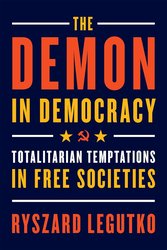A Conservative’s Take on the Chaotic State of the Republican Party
Republicans already hold tremendous power in America. They have appointed six of the nine current Supreme Court justices. They have more state trifectas (control of both legislative houses, as well as the governor’s seat) than Democrats. And come 2023, they will also control the House of Representatives.
But there’s a hollowness at the core of the modern G.O.P. It’s hard to identify any clear party leader, coherent policy agenda or concerted electoral strategy. The party didn’t bother putting forward a policy platform before the 2020 election or articulating an alternative policy vision in 2022. It has hardly reckoned with its under-performances in the 2018, 2020, and 2022 elections. At this point, it’s unclear whether there’s any real party structure — or substrate of ideas — left at all.
All of which raises the question: What exactly is the Republican Party at this point? What does it believe? What does it want to achieve? Whose lead does it follow? Those questions will need to be answered somehow over the next two years, as Republican politicians compete for their party’s nomination for the 2024 presidential election and Republican House members wield the power of their new majority.
Michael Brendan Dougherty is a senior writer at National Review and a nonresident fellow at the American Enterprise Institute. We disagree on plenty, but I find him to be one of the sharpest observers of the contemporary Republican Party. So I invited him on the show for an inside-the-tent conversation on the chaotic state of the current G.O.P. and the choices it will have to make over the next two years.
We discuss how the party is processing the 2022 midterms, why Dougherty thinks Donald Trump has a very good chance of winning the Republican nomination again in 2024, whether the G.O.P. leadership actually understands its own voters, how Ron DeSantis rose to become one of the party’s leading 2024 contenders, whether DeSantis — and the G.O.P. more broadly — actually have an economic agenda at this point, why Trump’s greatest strength in 2024 could be the economy he presided over in 2018 and 2019, why Dougherty doesn’t think Trump’s political appeal is transferable to anyone else in the Republican Party, what kind of House speaker Kevin McCarthy might be, which Republicans — other than Trump and DeSantis — to watch out for, and more.






